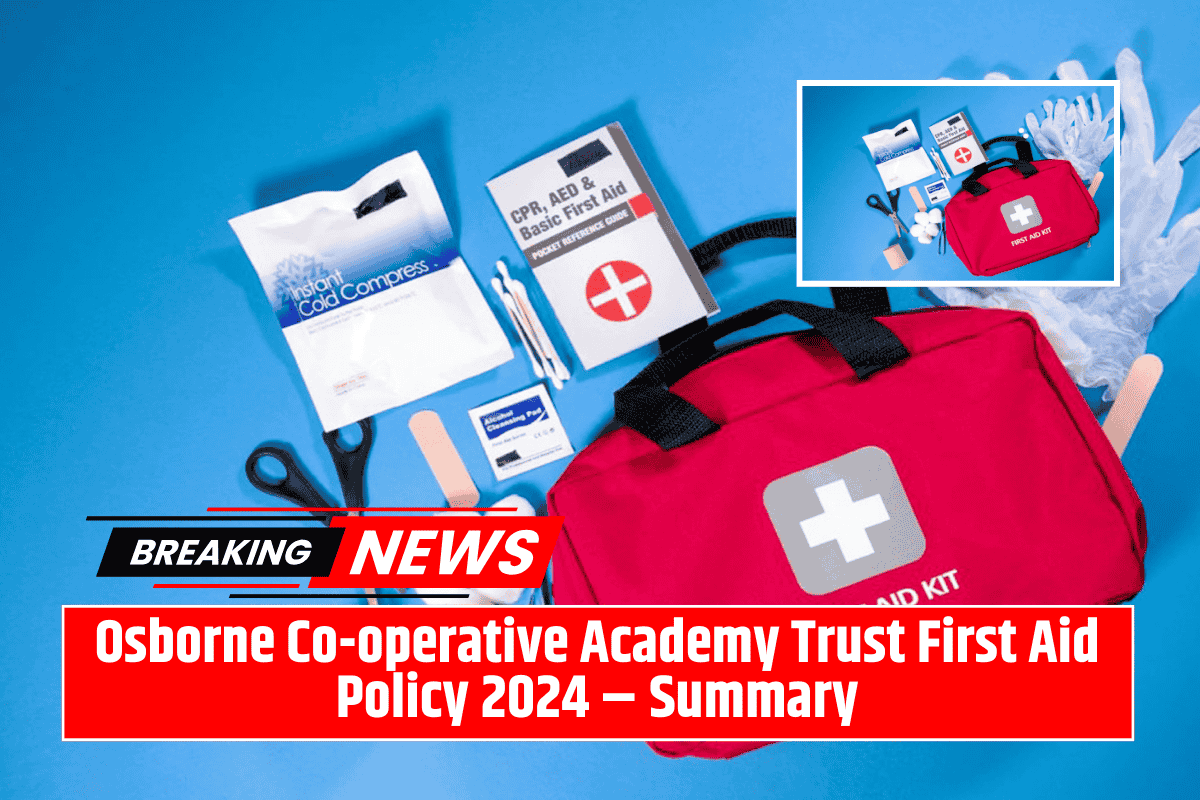The Osborne Co-operative Academy Trust (OCAT) believes that every student, staff member, and visitor deserves to be safe and well cared for. The First Aid Policy outlines how the schools under OCAT handle medical emergencies, injuries, and illnesses. It ensures quick and effective help is available whenever needed.
Purpose of the Policy
This policy is designed to:
- Protect the health and safety of students, staff, and visitors.
- Make sure staff know their responsibilities regarding first aid.
- Provide clear procedures for treating injuries and reporting them.
- Ensure proper risk assessments are in place for first aid situations.
Key Responsibilities
First Aiders:
- Provide immediate treatment when someone is ill or injured.
- Decide if an ambulance or further help is needed.
- Complete accident reports on the same day.
Headteacher:
- Make sure there are enough trained first aiders in the school.
- Ensure first aiders receive up-to-date training.
- Provide space and resources for first aid needs.
- Report serious incidents through the correct procedures.
School Staff:
- Know who the first aiders are and follow first aid procedures.
- Report incidents using official forms.
- Inform leadership about students or staff with specific health needs.
First Aid in Action
In-School:
- A staff member or first aider will attend to anyone who gets hurt or feels unwell.
- If a student needs to go home, their parent or carer will be contacted.
- Emergency services will be called for serious situations.
- Every incident is recorded properly, including details like location, weather, and witnesses.
On Trips or Off-Site:
- Staff will carry first aid kits and any necessary medication.
- At least one trained first aider will be present on all trips.
- Special care is taken for students with known medical needs.
First Aid Kits and Equipment
Typical items include:
- Bandages, plasters, gloves, scissors, and burn dressings.
- No medication is stored in the kits.
- Kits are placed in key locations like the medical room and PE office.
- The school has defibrillators in accessible areas.
Medication Guidelines
- Students with asthma must carry an inhaler and provide a spare.
- Students needing epi-pens must carry two and inform the school where they are kept.
Record Keeping and Reporting
- Accident reports are completed and saved in the school’s system.
- Any serious incident, such as fractures or burns, is reported to the Health and Safety Executive (HSE) through the proper channels.
- Near-miss incidents (where no one was injured, but something could have gone wrong) must also be reported.
Communication with Parents
Parents will be informed of any accident involving their child on the same day or as soon as possible. This includes the details of what happened and what first aid was given.
Training and Staffing
- All schools keep a record of trained first aiders and update their training regularly.
- For early years (EYFS), staff must have paediatric first aid training.
- The policy ensures cover during staff absences.
Monitoring and Review
The policy is reviewed every three years or when new rules are introduced. It’s approved by the school’s governing board and linked to other important policies like health and safety and supporting pupils with medical conditions.












